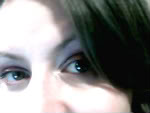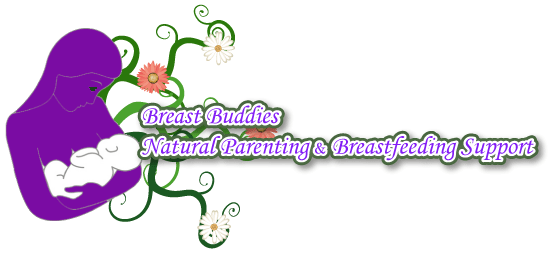Mastitis
Breast Buddies Natural Parenting And Breastfeeding Support Forum. Attachment Parenting :: Breastfeeding, Pregnancy And Parenting Resources :: Breastfeeding and nutrition
Page 1 of 1
 Mastitis
Mastitis
Mastitis
Mastitis is an inflammation of the breast, which may progress to an infection. It feels like you are coming down with flu, leaving you tired, restless at just the time when you need all of your energy. You may notice areas of redness, hardness, soreness, or heat in your breast and swelling of the affected area- sometimes it can reasemble a and print on he skin. This is often called a blocked duct because a lump can often be felt – although this is not caused by a blockage but by milk in the tissue instead of the duct, which causes localised inflammation and swelling.
Common, and more serious, signs of mastitis include chills, sudden feeling of hot, a headache, a temperature of over 38.5 degrees C / 101 degrees F and exhaustion. These symptoms are usually caused not by infection but by milk entering the small blood vessels in your breast and then being treated by your body as a "foreign protein".
If you find yourself with mastitis, you're not alone: about one in 10 breastfeeding mothers get it and some bottle-feeding mothers do too. While you can get mastitis more than once, it's unlikely that you'll get it in both breasts at the same time.
It is now recognised that mastitis is most often caused by "milk stasis". This is when milk "backs up" because it is being made faster than it is removed. It is usually caused by your baby not emptying your breasts well when he feeds. The most common reason for this is a problem with the way your baby latches on. If you and your baby haven't got the hang of latching on properly, milk won't be removed efficiently. Other causes of mastitis include engorgement that doesn't return to normal, feeding to a strict routine or even trauma to the breast, which can all cause milk stasis leading to mastitis.
Infective mastitis may develop from milk stasis or it may be caused by invading germs, although how exactly infection enters a breast isn't clear. Some women who have had mastitis have also had cracked nipples and the infection may have passed through the crack or fissure in the nipple into the lymphatic system of the breast.Other experts believe that mastitis and cracked nipples are both symptoms resulting from poor latch-on technique and so the two are likely to be linked in this way.
Don't stop feeding – that will make mastitis much worse. Contact your doctor straight away. Depending on how long you have had the mastitis and how severe it is, she may send you to a breastfeeding specialist or prescribe antibiotics, or both. (Check with her that any prescribed medicine will not affect your baby, though the most commonly prescribed antibiotics for mastitis are safe for babies). She may also suggest bed rest, pain relievers and hot compresses. When the antibiotics kick in during the next 24 hours, you'll start feeling better even if there is no infection, as antibiotics help to reduce inflammation.
If there are any problems with your baby latching on and feeding effectively, antibiotics won't work in the long term.
Some mums are reluctant to use antibiotics until they have explored every other avenue first. You may prefer to try some self-help measures, whilst keeping the antibiotics in the bathroom cabinet in case they are needed. However, you should pay close attention to your condition because if mastitis does not start to improve, it can develop into a breast abscess, which will require immediate medical attention (and sometimes surgery) to drain it.
Whether you start antibiotics immediately or decide to wait for 24 hours, you can help yourself by trying the following:
• Make sure your baby is latched on properly at the breast and feeding well.
• Try different feeding positions if they help your baby to latch on better.
• To keep the affected breast well drained, breastfeed as often as your baby wants to.
• Express milk by hand or with a pump, after feeds, if you feel your baby has not used the breast well
• If you feel ill, rest as much as you can.
• You may find that it helps to apply warmth to the affected area, such as a flannel or compress, or have a warm bath or shower. Some mothers find that cold compresses work better.
• If it helps to massage your breasts, do so very gently while your baby is feeding to help the milk to flow from them. Vigorous massage can actually make mastitis worse by pushing the "leaked" milk further into the breast tissue.
• You can also take painkillers to help with the pain. Ibuprofen can be taken whilst breastfeeding and may help to reduce inflammation as well as pain. Paracetamol is an alternative.
If it is diagnosed early, mastitis is easy and quick to treat and it won't be long before you feel 100 per cent better. If you start a course of antibiotics, (regardless whether you had an infection) be sure to take all of them. If your breast remains tender and you still have a temperature, contact your GP.
Even though you may be feeling awful, mastitis will not affect your baby and it is safe for your baby to feed from the affected breast. Even if you have infective mastitis and your baby swallows bacteria in the milk from the infected breast, the bacteria will be killed off by the acid in your baby's stomach.
Sources:
http://www.breastfeedingonline.com/22pdf.pdf
Mastitis is an inflammation of the breast, which may progress to an infection. It feels like you are coming down with flu, leaving you tired, restless at just the time when you need all of your energy. You may notice areas of redness, hardness, soreness, or heat in your breast and swelling of the affected area- sometimes it can reasemble a and print on he skin. This is often called a blocked duct because a lump can often be felt – although this is not caused by a blockage but by milk in the tissue instead of the duct, which causes localised inflammation and swelling.
Common, and more serious, signs of mastitis include chills, sudden feeling of hot, a headache, a temperature of over 38.5 degrees C / 101 degrees F and exhaustion. These symptoms are usually caused not by infection but by milk entering the small blood vessels in your breast and then being treated by your body as a "foreign protein".
If you find yourself with mastitis, you're not alone: about one in 10 breastfeeding mothers get it and some bottle-feeding mothers do too. While you can get mastitis more than once, it's unlikely that you'll get it in both breasts at the same time.
It is now recognised that mastitis is most often caused by "milk stasis". This is when milk "backs up" because it is being made faster than it is removed. It is usually caused by your baby not emptying your breasts well when he feeds. The most common reason for this is a problem with the way your baby latches on. If you and your baby haven't got the hang of latching on properly, milk won't be removed efficiently. Other causes of mastitis include engorgement that doesn't return to normal, feeding to a strict routine or even trauma to the breast, which can all cause milk stasis leading to mastitis.
Infective mastitis may develop from milk stasis or it may be caused by invading germs, although how exactly infection enters a breast isn't clear. Some women who have had mastitis have also had cracked nipples and the infection may have passed through the crack or fissure in the nipple into the lymphatic system of the breast.Other experts believe that mastitis and cracked nipples are both symptoms resulting from poor latch-on technique and so the two are likely to be linked in this way.
Don't stop feeding – that will make mastitis much worse. Contact your doctor straight away. Depending on how long you have had the mastitis and how severe it is, she may send you to a breastfeeding specialist or prescribe antibiotics, or both. (Check with her that any prescribed medicine will not affect your baby, though the most commonly prescribed antibiotics for mastitis are safe for babies). She may also suggest bed rest, pain relievers and hot compresses. When the antibiotics kick in during the next 24 hours, you'll start feeling better even if there is no infection, as antibiotics help to reduce inflammation.
If there are any problems with your baby latching on and feeding effectively, antibiotics won't work in the long term.
Some mums are reluctant to use antibiotics until they have explored every other avenue first. You may prefer to try some self-help measures, whilst keeping the antibiotics in the bathroom cabinet in case they are needed. However, you should pay close attention to your condition because if mastitis does not start to improve, it can develop into a breast abscess, which will require immediate medical attention (and sometimes surgery) to drain it.
Whether you start antibiotics immediately or decide to wait for 24 hours, you can help yourself by trying the following:
• Make sure your baby is latched on properly at the breast and feeding well.
• Try different feeding positions if they help your baby to latch on better.
• To keep the affected breast well drained, breastfeed as often as your baby wants to.
• Express milk by hand or with a pump, after feeds, if you feel your baby has not used the breast well
• If you feel ill, rest as much as you can.
• You may find that it helps to apply warmth to the affected area, such as a flannel or compress, or have a warm bath or shower. Some mothers find that cold compresses work better.
• If it helps to massage your breasts, do so very gently while your baby is feeding to help the milk to flow from them. Vigorous massage can actually make mastitis worse by pushing the "leaked" milk further into the breast tissue.
• You can also take painkillers to help with the pain. Ibuprofen can be taken whilst breastfeeding and may help to reduce inflammation as well as pain. Paracetamol is an alternative.
If it is diagnosed early, mastitis is easy and quick to treat and it won't be long before you feel 100 per cent better. If you start a course of antibiotics, (regardless whether you had an infection) be sure to take all of them. If your breast remains tender and you still have a temperature, contact your GP.
Even though you may be feeling awful, mastitis will not affect your baby and it is safe for your baby to feed from the affected breast. Even if you have infective mastitis and your baby swallows bacteria in the milk from the infected breast, the bacteria will be killed off by the acid in your baby's stomach.
Sources:
http://www.breastfeedingonline.com/22pdf.pdf

Kasia80-
 Number of posts : 4575
Number of posts : 4575
Age : 44
From : Oxfordshire
Tell us about yourself : \"If breastfeeding in public makes people uneasy because the breasts are considered sexual, then bottle-feeding must be the equivalent of whipping out a dildo\"
Your mood today : Happy
Thanks and Reputation points : 20
Points : 549
Registration date : 2007-08-04
Breast Buddies Natural Parenting And Breastfeeding Support Forum. Attachment Parenting :: Breastfeeding, Pregnancy And Parenting Resources :: Breastfeeding and nutrition
Page 1 of 1
Permissions in this forum:
You cannot reply to topics in this forum